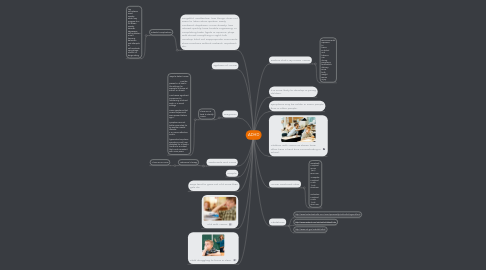
1. Forgetful, unattentive, lose things, does not seem to listen when spoken, easily confused, daydream, move slowely, lose interest quickly, have trouble organizing, or completing tasks, figets or squirms, plays with almost everything in sight, talk nonstop, blurt out inappropriate comments, show emotions without restraint, impatiant, etc.
1.1. Potential complications
1.1.1. low self-esteem social anxiety, which may progress to a full blown anxiety disorder depression self-mutilation or self- harming behaviors and attempts to self-medicate using drugs, alcohol, or binge eating
2. Syptoms of ADHD
3. Diagnosis
3.1. There are no tests to identify ADHD
3.1.1. Ways to detect ADHD Must be present in at least 2 life settings, for example, at home, at school, or at work Must cause significant impairment in functioning at school, work, or in social settings Some symptoms that caused impairment were present before age 7 Symptoms are not better accounted for by another mental disorder 6 or more inattentive and/or hyperactive/impulsive symptoms must have persisted for at least 6 months to an extent that is not consistent with one's peers
4. Treatments and Cures
4.1. -Behavioral Therapy
4.1.1. -There are no cures
